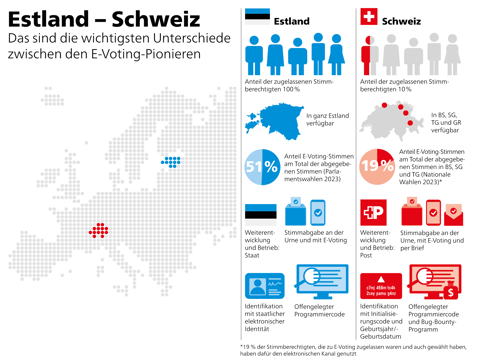
Blog abonnieren
Melden Sie sich für den Post E-Government Blog an und erhalten sie regelmäßig Updates zu unseren neuesten Blogartikeln, Expertenmeinungen und Branchentrends.
Kontakt E-Government Wir beraten Sie gerne.
-
Schreiben Sie uns
Senden Sie uns Ihre Anfrage -
Blog
Bleiben Sie auf dem Laufenden
-
Die Post auf LinkedIn
Besuchen Sie uns auf LinkedIn -
Unsere Adresse
Post CH Kommunikation AG
E-Government
Wankdorfallee 4
3030 Bern
Das könnte Sie auch interessieren

Behörden sicher digitalisieren
Digitalisierung bietet dem öffentlichen Sektor immense Chancen. Aber auch Herausforderungen. Erfahren Sie, wie sichere Technologien eine bürgernahe, effektive und vernetzte Verwaltung ermöglichen.

Mehr Wert durch E-Government-Lösungen
Erfahren Sie hier, warum digitale Prozesse, Vernetzung und Datensicherheit so wichtig sind für die moderne, digitale Verwaltung.

E-Government in der Praxis
Entdecken Sie verschiedene Anwendungsfälle und Referenzen aus dem Bereich E-Government. Hier erfahren Sie, wie Sie und Ihre Behörde von unseren Lösungen profitieren.








